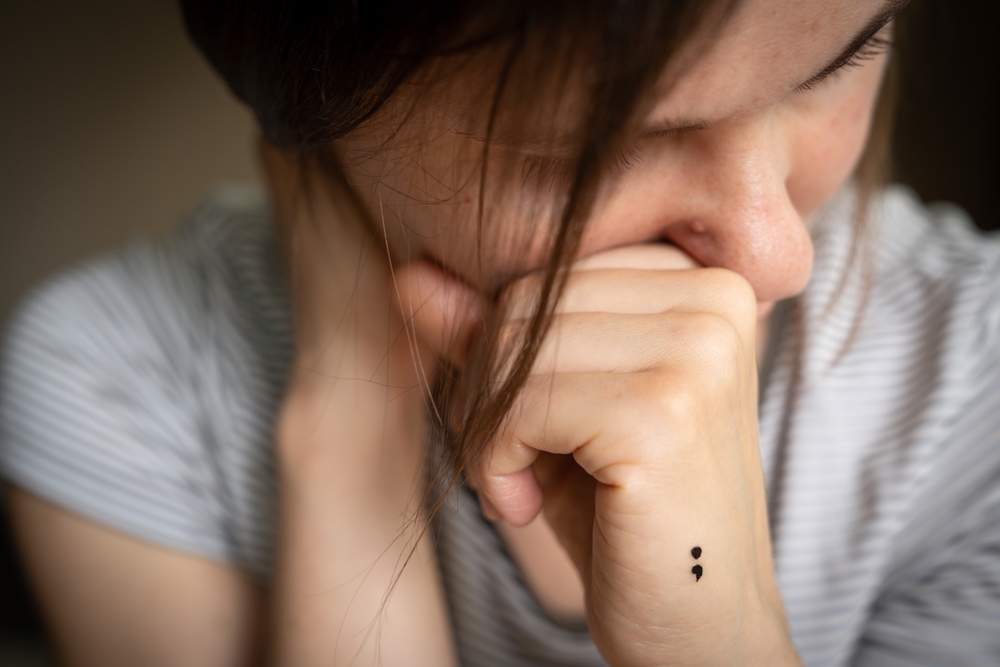
Suicide Prevention – We Are Not Immune
Written by Tanya Goldfrad, R.P.H., M.P.H.
Suicide has touched my life in a number of ways in the past five years. I have been involved with supporting families whose teens have attempted and even been successful at suicide. When I was in the final year of my master’s degree, two young adults in my town ended their lives through suicide. It shook my soul because it was a tragedy on so many levels. One, these were religious children who were raised to value and relish life. Two, they were young and each a beautiful soul with so very much to give and enjoy in this world. Three, they were repeatedly treated for mental illness, had been exposed to trauma and I as a healthcare worker felt and still feel that the system had failed them and their families. At that point I changed my goals. I had been working towards developing programs for the prevention and reversal of diabetes, still a topic I am very passionate about, but suicide prevention became paramount to me.
Suicide among teenagers has been rising in numbers in the past decade. Yes, even prior to Covid-19. It’s been insidiously spreading to our teens. During a time of relative peace and blessing teenagers and young adults across the world have elected to end their lives. How do we digest this? There have been many theories as to the cause.
One has been social media. They see what other teens portray as reality and if they don’t have it or can’t achieve it – they can snap. Another theory is that with the advent of social media, teens can be bullied and isolated in ways never before imagined. When I was in school someone would send a note in class. Maybe it reached 10 or 15 people. Now with one click the entire school can see an embarrassing picture or moment. The intensity of scrutiny and torment can lead to a feeling of hopelessness. Sadly, these dark emotions bring us to bleak thoughts and poorly thought-out decisions.
The next common strand is mental health. Suicide becomes a pressing decision when the pain is unbearable. When someone has been trying to heal and isn’t improving, they feel hopeless again. Worse, is that feeling that they are beyond help and will be forced to suffer constantly until they die.
Despite these explanations, neither of them is the missing puzzle piece we seek. How do we know? Simply because not everyone who is bullied/ostracized commits suicide. Not everyone who is mentally ill does either. So how come some do choose to end their life? What we have seen in numerous studies is that adults and teens with more connections and stronger relationships feel that they have more to live for and choose not to take their own lives, despite the pain.
One of my ongoing projects is interviewing people who attempted suicide. I am trying to build a more complete picture that will identify what we need to know so we can save more people. One of my interviews was with a 50+-year-old male whose wife had
cheated on him and was taking away a business that he built. He was placing a noose around his own neck and stepping off the low stool he set up in his barn, when church teachings beckoned to him. He described to me a voice, calling him to remove the noose, assuring him it’ll be ok. He worked hard, rebuilt his life and business despite the pain, and 10 years after that fateful night, he assured me he was doing much better. He had hard moments, but he was grateful to be alive.
This feeling that one was not alone and that they would in fact get through the pain somehow, became a recurring theme in my interviews. Another idea that I heard quite a bit was the knowledge that someone needed them. For example, a mother of a small child had as a teen herself swallowed medication to end her life. She called for help before it was too late and saved herself. In our interview, she admitted to me that she still deals with these same emotions to this day. But once she had her first child she knew she had an important reason to live. Her baby needed her.
Despite the personal pain, we don’t want to hurt our loved ones. Alternatively, having a deep connection with another person, knowing they have someone they can confide in, can be enough to stave off the feeling of being utterly alone, and cause them to choose life. These strands of belief and human connections become what tethers us to this world. They undergird our will to live. We want to see the ones we love, and not to disappoint them.
These connections and beliefs make us more resilient. Being more resilient is how researchers have explained why some people will be exposed to the same trauma and respond differently. Why they seem to have the ability to cope better. As a people we have experienced this as well. Our communal life has made the long, and at times brutal, exile bearable. We were never alone. Our Torah and tradition emphasize that Hashem has accompanied us along the way. Yet we need to do more. The modern era has seen an increase in suicide among Jewish people as well. We must figure out how to communicate to our children that the pain of living is worth it. They need to know that we are not embarrassed by them even if they don’t fit in the “boxes” that our community creates. We need to show them no matter what their circumstance, their predicament does not dictate their future. If we have a dysfunctional household we can build a better one or improve the one we have. If a boy isn’t strong in Talmud – it doesn’t make him a lesser Jew, he is still able to be a valuable part of the community and feel its love.
We need to focus on improving the home environment and expectations. We are raising children, not robots. Yes, they will do what they want, not always to our liking, but that doesn’t make the child a failure, it makes them an individual.
When we encourage our children to develop and blossom in the direction that they want, we remove unneeded stress and free them from internal dissonance and poor self-esteem.
We need to improve the school and community environments and expectations. Children need to be encouraged to ask questions, even difficult ones, and we need to create an environment where they are unafraid to report abuse. Censorship of children (for religious infractions also) MUST STOP. Those who bully and intimidate must be dealt with. But those who are being bullied must be encouraged to stand up for themselves.
As a community we must find ways to incorporate teens into communal life so they feel included in services. Events and activities that are designed not only to keep them from being bored, but to help them feel that they are valued is critical. A teen who feels valued will be less fearful and more inclined to be a greater contributor to the community.
September is Suicide Prevention Awareness Month. We cannot sit back and think this problem is isolated and does not affect our children. Suicide is on the rise across the globe, and that includes the Jewish community. We can stick our heads in the sand and pretend it isn’t the case or take an honest look at ourselves and find ways to make the changes necessary.
Author’s note: This month I am again hosting my annual Teens Triumphant summit. This is a passion project of mine. I have a deep seated need for there to be fewer people ending their lives and more living a joy-filled and productive one. Please join me in this free summit. There will be 20 speakers teaching ways to understand the teen mind, how to improve mental health issues, and how to become more confident parents. If you just learn one new tip or trick that improves your child’s short-term or long-term life, it’ll be worth it, no? The life you save could be someone you love! For more information, visit – teenstriumph.org
Additional note: It is important for parents to keep in mind that many of these changes need to occur at communal and national levels and that sometimes a parent does everything they can – all the “right things” and it’s still not enough. If you are grieving the loss of a child to suicide, please know that it is not your fault. Seek support from organizations such as www.compassionatefriends.org or www.winstonswish.org.

Children need to be encouraged to ask questions, even difficult ones, and we need to create an environment where they are unafraid to report abuse.
Related Articles
Related
Kumzitz and Laugh
In the darkest recesses of the human mind, in a place so heavy with shadow it seems impossible for a pinprick of light to shine through, a spark exists. That tiny ray seems like a direction, a point of promise, a simple moment of relief from the reality of the world...
Making Our Celebrations Less Stressful and More Meaningful
Celebrations (smachot) highlight happy occasions and milestones such as Bar and Bat Mitzvahs and weddings. They are special times we look forward to with great anticipation for many years. Over the last few decades, however, both making a simcha (celebratory occasion)...
Dealing with Winter Doldrums
Despair. Hopelessness. Feelings of low self-worth. Lack of productivity. These words and phrases may describe the thoughts of someone who is clinically depressed. But, they can also describe the moods of many people during the winter season and on rainy days. In much...

